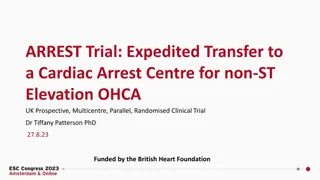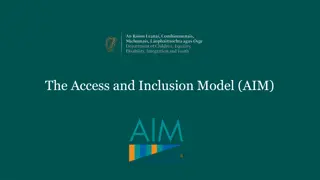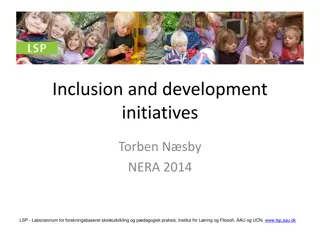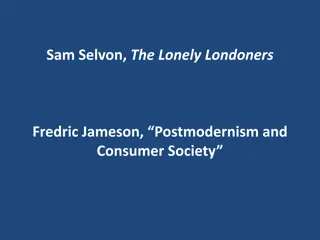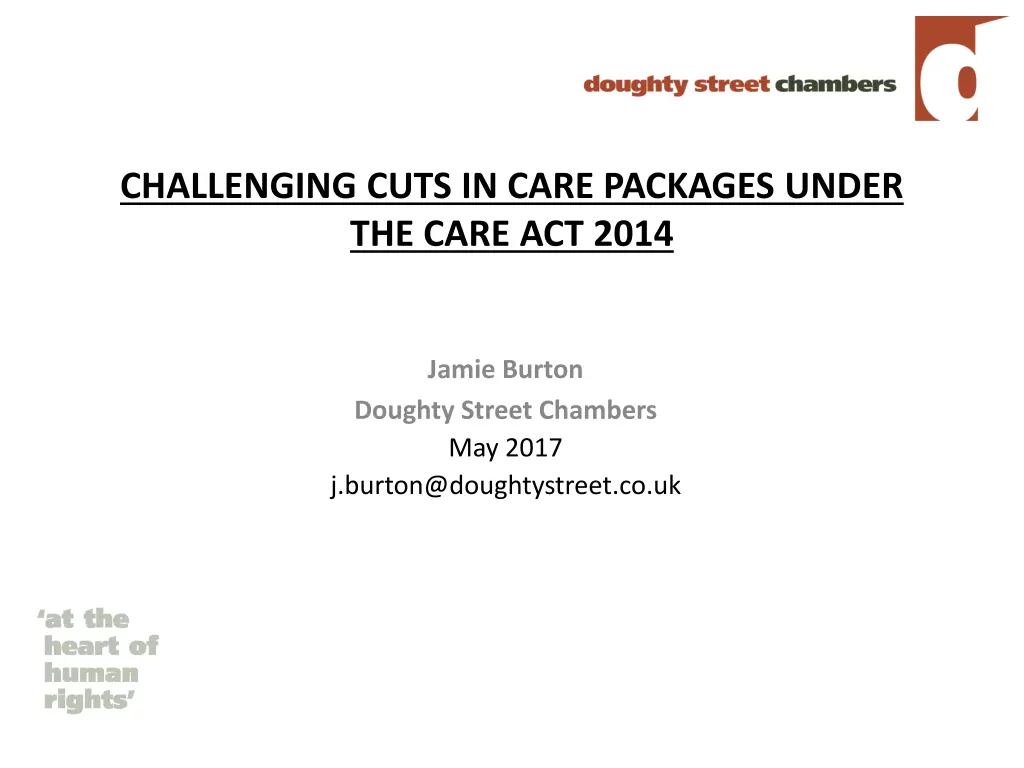
Understanding Key Principles of the Care Act 2014 for Challenging Cuts in Care Packages
Explore the key principles and objectives of the Care Act 2014, focusing on the consolidation of legal frameworks, cost reforms, support services for carers, and policy aims. Learn about the structure, wellbeing promotion, and individual well-being considerations outlined in the Act. Gain insights into the statutory guidance and the importance of prioritizing individuals' well-being and preferences in care decisions.
Uploaded on | 0 Views
Download Presentation

Please find below an Image/Link to download the presentation.
The content on the website is provided AS IS for your information and personal use only. It may not be sold, licensed, or shared on other websites without obtaining consent from the author. If you encounter any issues during the download, it is possible that the publisher has removed the file from their server.
You are allowed to download the files provided on this website for personal or commercial use, subject to the condition that they are used lawfully. All files are the property of their respective owners.
The content on the website is provided AS IS for your information and personal use only. It may not be sold, licensed, or shared on other websites without obtaining consent from the author.
E N D
Presentation Transcript
CHALLENGING CUTS IN CARE PACKAGES UNDER THE CARE ACT 2014 Jamie Burton Doughty Street Chambers May 2017 j.burton@doughtystreet.co.uk
KEY PRINCIPLES/OBJECTIVES OF THE ACT consolidation and simplification of the existing legal framework reforming the cost of care to individuals extending the provision of support services to carers implementing policy aims of: early intervention, wellbeing, and personalisation/choice. 2
STRUCTURE a) the Act, (b) regulations, and (c) statutory guidance Statutory Guidance document, Care and Support Statutory Guidance Part 1 of the Care Act 2014, with which this claim is concerned, came into force on 1 April 2015. Guidance was modified in March 2016 and again in December 2016 (ONLINE ONLY) 3
WELLBEING Law Com thought there should be a set of statutory principles which gave expression to the underlying purpose of the statute. Settled on wellbeing Local authorities must promote wellbeing when carrying out any of their care and support functions in respect of a person. ... it is a guiding principle that puts wellbeing at the heart of care and support. The core purpose of adult care and support is to help people to achieve the outcomes that matter to them in their life. 4
Well-being, in relation to an individual, means that individual's well-being so far as relating to any of the following (a) personal dignity (including treatment of the individual with respect); (b) physical and mental health and emotional well-being; (c) protection from abuse and neglect; (d) control by the individual over day-to-day life (including over care and support, or support, provided to the individual and the way in which it is provided); (e) participation in work, education, training or recreation; (f) social and economic well-being; (g) domestic, family and personal relationships; (h) suitability of living accommodation; (i) the individual's contribution to society. 5
s.1(3)must have regard to the following matters (a) the importance of beginning with the assumption that the individual is best-placed to judge the individual's well-being; (b) the individual's views, wishes, feelings and beliefs; (c) the importance of preventing or delaying the development of needs for care and support or needs for support and the importance of reducing needs of either kind that already exist; (d) the need to ensure that decisions about the individual are made having regard to all the individual's circumstances (and are not based only on the individual's age or appearance or any condition of the individual's or aspect of the individual's behaviour which might lead others to make unjustified assumptions about the individual's well-being); 6
s.1(3) contd/ (e) the importance of the individual participating as fully as possible in decisions relating to the exercise of the function concerned and being provided with the information and support necessary to enable the individual to participate; (f) the importance of achieving a balance between the individual's wellbeing and that of any friends or relatives who are involved in caring for the individual; (g) the need to protect people from abuse and neglect; (h) the need to ensure that any restriction on the individual's rights or freedom of action that is involved in the exercise of the function is kept to the minimum necessary for achieving the purpose for which the function is being exercised. 7
R (Davey) v. OCC & EHRC [2017] EWHC 354 19 The Claimant relies upon the duty to haveregard under s.1(3) and in particular upon subsections (a) and (d). He also relies upon the duty under section 1(1) as being distinct from s.1(3) duty; and submits that there can be a breach of s.1(1) separate from s.1(3) . On the other hand, the Defendant contends that it is the specific elements identified in section 1(3)(a) to (h) which constitute relevantconsiderations for the purposes of legal challenge by way of judicial review in this case. I agree with the Claimant. Section 1(1) and (2) impose a distinct duty upon the Defendant, in each individual case, to promote the individual's wellbeing, including physical and mental health and emotional well-being. 8
THE FINANCIAL CLIMATE a) b) Government IA no extra money needed 2014 HOC Public Account Committee government has not addressed long term sustainability or acknowledged scale of the problem Meantime adult social care funding fell from 14.7bn in 2012-13 to 14.1bn in 2015-16 LGA predicts massive shortfall - 2.6 billion by 2019/20 This has led inexorably to cuts in care packages c) d) e) 9
1. Assessment of needs Assess the adults needs for care and support pursuant to s.9(1) And the matters set out in s.9(4): (i) the impact those needs have on well-being (ii) the outcomes the adult wants to achieve (iii) whether and is so to what extent the provision of care and support could contribute to the achievement of those outcomes). 11
What is a need? A desired outcome? No distinct. But connected Guidance: 6.9. The purpose of an assessment is to identify the person s needs and how these impact on their wellbeing, and the outcomes that the person wishes to achieve in their day-to-day life. The assessment will support the determination of whether needs are eligible for care and support from the local authority, and understanding how the provision of care and support may assist the adult in achieving their desired outcomes. 6.110 In making this judgment, local authorities should look to understand the adult s needs in the context of what is important to him or her .... Circumstances which create a significant impact on the wellbeing of one individual may not have the same effect on another. 12
Outcome/needs So the impact of a certain need on welling cannot be understood or assessed without addressing the desired outcomes Foreshadows and consistent with the eligibility criteria needs expressed by reference the inability to achieve an outcome without care and support (or other things?) 13
2. Eligibility Criteria 3 stage test (eligibility regs) 1. Arise from or relate to mental and physical impairment 2. As a result unable to achieve two or more outcomes 3. As a consequence significant impact on wellbeing Note: No need to be accommodation related Carer blind Ignore material support (R (GS) Camden) Significant not defined 14
Specified outcomes maintaining personal hygiene managing toilet needs; being appropriately clothed; being able to make use of the adult's home safely; maintaining a habitable home environment; developing and maintaining family or other personal relationships; accessing and engaging in work, training, education or volunteering; making use of necessary facilities or services in the local community including public transport, and recreational facilities or services; and carrying out any caring responsibilities the adult has for a child. 15
Being unable? Being unable to achieve an outcome if the adult is unable to achieve it without assistance; is able to achieve it without assistance but doing so causes the adult significant pain, distress or anxiety; is able to achieve it without assistance but doing so endangers or is likely to endanger the health or safety of the adult, or of others; or is able to achieve it without assistance but takes significantly longer than would normally be expected 16
3. Duties (and powers) Section 18 meet eligible needs (unless being met by carer 18(7)) Section 19 power (non-eligible and urgent needs) What may be provided to meet needs? Non-exhaustive list in s.8 accommodation/care and support/counselling and other types of social work/goods and facilities/information & advice What ways can needs be met by an LA? provide or arranging for someone to provide a service direct payments Old division between medical care/housing and social care is retained (s.22 and s.23) 17
4. Care Planning Care and support plan help the adult with deciding how needs will be met Specify eligible needs and how they are going to be met Must take all reasonable steps to involve the adult and agree the plan The plan must be proportionate having regard to matters in s.9(4) wellbeing and desired outcomes Set a personal budget sufficient to meet the needs in the manner set out in the Plan budget must be transparent 18
5. Reviews of care and support plans S.27 Keep under review generally Review on a reasonable request LA may revise it Must go through the care planning process again proportionate etc This process is central to the provision of person-centred care and support that provides people with choice and control over how to meet their needs. 19
What are needs and meeting needs? Guidance at 10.10 The intention behind the legislation is to encourage this diversity, rather than point to a service or solution that may be neither what is best nor what the person wants. The purpose of the care and support planning process is to agree how a person s needs should be met, and therefore how the local authority will discharge its duty, or its power, to do so. Kept separate throughout e.g. s.13(4)(2) consider what could be done to meet those needs that do Therefore no warrant for defining needs by reference to service, facility or thing as per old law (McDonald v. RBKC) In order to meet needs must do what is necessary to ensure the adult can achieve outcomes in a way which promotes his wellbeing 20
Davey.. First, as to the meaning of need (or in need ), this denotes something more than merely want but falls far short of cannot survive without . The words are in need of , refers to present needs and not the future. Secondly, it may be legitimate for a local authority, in assessing an applicant's needs and/or eligible needs to take into consideration the availability of its resources: R v Gloucestershire County Council ex parte Barry [1997] AC 584 and KM (raising, but not deciding, questions as to the true interpretation of Barry, particularly in relation to the stage (i) assessment). This is almost certainly wrong. 21
Needs and wants Therefore distinction between needs and wants not very helpful - a need is a inability to achieve an outcome. If the adult wants something for some other reason then plainly irrelevant (unless unspecified outcome in which case ineligible need and s.19 However, the adult may want his needs to be met in a certain way and if they are not met in that way it may have a significant impact on his wellbeing If so the LA is bound to have regard to that s.1(3)(a)(v) and (3): regulation 2(3) wellbeing Particularly important in care planning s.24(1)(c) help the adult with deciding how to have the needs met. and s.25(6) prepare a proportionate plan , having regard to desired outcomes and impact on wellbeing 22
Article 19 UNCRPD Guidance 1.18 Although not mentioned specifically in the way that wellbeing is defined, the concept of independent living is a core part of the wellbeing principle. 1.19 The wellbeing principle is intended to cover the key components of independent living. Supporting people to live as independently as possible, for as long as possible, is a guiding principle of the Care Act. The language used in the Act is intended to be clearer, and focus on the outcomes that truly matter to people, rather than using the relatively abstract terms independent living . 23
Davey and Article 19 49. Finally, the importance of the wishes of the service user is fully addressed in the provisions of the Act itself. The relative balance between those wishes and the assessment of the local authority is struck in the provisions of the Act themselves. In my judgment, and in the light of the principles set out above, there is no warrant for a conclusion that, by dint of the application or consideration of Article 19 itself and the concept of independent living therein, that balance is weighted more in favour of the service user, than it would otherwise be under the Act, to the extent that the service user can have the final say on his own needs and personal budget or dislodge the principle that, under the Act, the decisions are ultimately to be taken by the local authority. The wishes of the disabled person may be a primary influence, but they do not amount to overriding consideration. 24
What does this mean in practice? The Care Plan referred to a team of PAs. Under other options considered the plan stated live in care . . Luke Davey did not want live in care. Was it open to D to argue that the budget was sufficient because it could be used to fund live in care? No. D based its support plan on a team of PA. It was not open to the D to later argue that needs could also be met with Live-in Care That would require a new assessment and new care and support plan (section 27(4)) 25
THE END jamieburton@doughtystreet.co.uk 27





